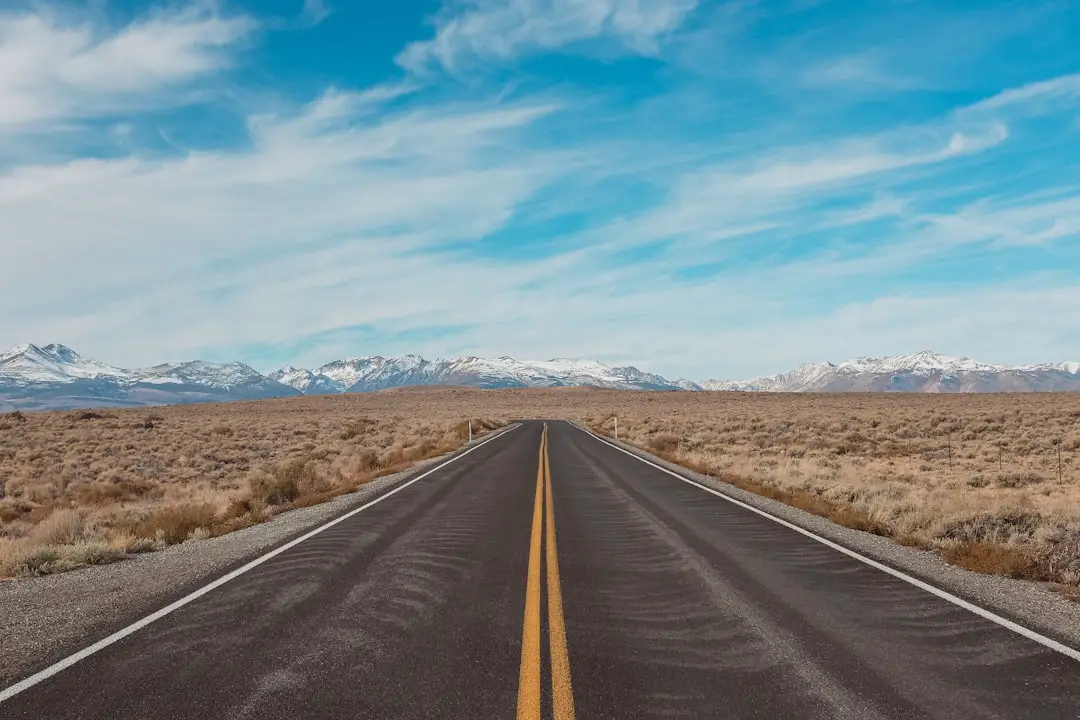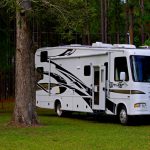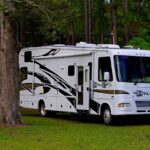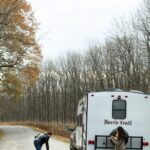
Imagine this: you’re cruising down a scenic highway, the wind whipping through your hair, the open road stretching before you. Sounds idyllic, right? But what about the potential dangers lurking beneath the surface of this seemingly carefree lifestyle? Living in an RV, while incredibly liberating, comes with its share of risks. From fire hazards to wildlife encounters, understanding these dangers is crucial for a safe and enjoyable experience. In this comprehensive guide, we’ll delve into 19 potential risks and equip you with the knowledge and tools to navigate them with confidence.
RV Living Safety Key Takeaways #rv-living-safety-key-takeaways
- Know Your Risks: From fire hazards to theft, understanding the potential dangers of RV living is the first step to staying safe.
- Prevention is Key: Invest in safety equipment like smoke detectors, carbon monoxide detectors, and fire extinguishers.
- Maintenance Matters: Regularly inspect and maintain your RV to prevent breakdowns and ensure its safe operation.
- Stay Prepared: Have an emergency kit readily available and a communication plan in place for unexpected situations.
👉 Shop for Safety Equipment:
- RV Smoke Detectors: Amazon | Camping World | RVshare
- RV Carbon Monoxide Detectors: Amazon | Camping World | RVshare
- RV Fire Extinguishers: Amazon | Camping World | RVshare
Table of Contents
- Quick Tips and Facts
- The History Of RVing And Safety
- Dangers Of Living In An RV: 19 RV Safety Risks
- RV Fire Hazards
- Humidity Is One Of The Biggest Winter Challenges Of Living In An RV
- Mold RV Safety
- RV Carbon Monoxide Risks
- Propane Leaks or Explosions
- Is Towing Or Driving An RV Safe?
- Theft & Break-Ins
- You Can Be Vulnerable To The Elements When Traveling In An RV
- Injuries Can Happen In Your RV
- RV Park Safety
- Boondocking Safety In Your RV Lifestyle
- RV Maintenance Is A Safety Responsibility When You RV Full-Time
- Pet RV Safety Concerns
- Unknown Campground Water Quality
- Pest Control Living In Your RV
- Air Quality Issues And Dust In A Camper
- Electromagnetic Fields
- Behind On Healthcare And Skipped Check-Ups Full-Time RVing
- Wildlife Safety While RVing
- Are You Prepared For An Emergency In Your RV?
- FAQs Dangers Of Living In An RV and RV Safety
- Your RV Safety Is Covered Now That You Know The Dangers Of Living In An RV
- Conclusion
- Recommended Links
- Reference Links
Quick Tips and Facts #quick-tips-and-facts
- Did you know there are over 1 million Americans living the RV life full-time? Source: Census.gov That’s a lot of adventurers! Head over to our article about 10 Mind-Blowing RV Statistics Worldwide 2024 🤯 to see more fun facts about the RV world.
- Always keep a first-aid kit handy, because, let’s face it, scrapes and bruises are practically RV souvenirs! 🤕
- Invest in a good water filter. Trust us, your taste buds will thank you. 💧 Nobody wants to cut their trip short because of a bad case of “campground water.” 🤢
- Learn basic RV maintenance. Knowing how to change a tire or tighten a screw can be a lifesaver (sometimes literally!). 🧰
The History Of RVing And Safety #the-history-of-rving-and-safety

The open road, the smell of campfire smoke, the freedom to roam…RVing has captured hearts for over a century! But those early “RVs” were a far cry from the luxurious homes-on-wheels we see today.
The first recreational vehicles emerged in the early 1900s, often little more than converted wagons. Can you imagine? Talk about roughing it! Safety? It was a different time!
Over the decades, RVs evolved. Trailers became sleeker, amenities improved, and safety features, well, they actually started to exist! From basic hitches to sophisticated braking systems, RV safety has come a long way.
But even with modern advancements, understanding the inherent dangers of RV living is crucial. Just like any home, awareness and preparation are key to a safe and enjoyable experience.
Dangers Of Living In An RV: 19 RV Safety Risks #dangers-of-living-in-an-rv-19-rv-safety-risks
We’re not here to scare you off, but knowledge is power, right? Let’s dive into some potential risks of RV living and, more importantly, how to mitigate them:
RV Fire Hazards #rv-fire-hazards
RVs, unfortunately, can be more susceptible to fires due to their compact size and the presence of flammable materials. The close proximity of vehicles in campgrounds further increases the risk. As The Adventure Detour aptly points out, “Don’t be afraid to speak up if your neighbor needs to be reminded of fire safety. Unfortunately, not everyone has fire common sense.”
Here’s how to minimize fire risks:
- Smoke and Propane Detectors: These are your first line of defense! Test them regularly and replace them according to the manufacturer’s instructions. Don’t rely on outdated detectors – it’s better to be safe than sorry!
- Fire Extinguisher: Keep one easily accessible and know how to use it before you need it. Practice makes perfect, even with fire extinguishers.
- Appliance Safety: Be cautious with stoves, ovens, and heaters. Don’t leave them unattended while in use, and ensure proper ventilation.
- Electrical Systems: Overloaded circuits are a fire hazard. Be mindful of your RV’s electrical capacity, especially when using multiple appliances.
Humidity Is One Of The Biggest Winter Challenges Of Living In An RV #humidity-is-one-of-the-biggest-winter-challenges-of-living-in-an-rv
Living in a small, enclosed space can lead to condensation buildup, especially during colder months. This excess moisture creates a breeding ground for mold and mildew, posing health risks and damaging your RV.
Combat humidity with these tips:
- Ventilation: Open windows and vents whenever possible to allow fresh air circulation.
- Dehumidifier: A small dehumidifier can work wonders in absorbing excess moisture. Empty the water tank regularly.
- Moisture Absorbers: Products like DampRid can help absorb moisture in smaller areas like closets and storage spaces.
Mold RV Safety #mold-rv-safety
Mold isn’t just unsightly; it can cause respiratory problems and other health issues. Prevention is key, but if you spot mold, address it immediately.
Mold Prevention and Remediation:
- Regular Cleaning: Wipe down surfaces prone to condensation, like windows and bathroom walls.
- Mold-Resistant Products: Use mold-resistant paint and cleaning products to inhibit growth.
- Professional Help: If you have a significant mold problem, consult a professional for remediation.
RV Carbon Monoxide Risks #rv-carbon-monoxide-risks
Carbon monoxide (CO) is a silent killer. It’s odorless, colorless, and can build up from faulty appliances or generators, leading to poisoning.
Protect Yourself from CO:
- CO Detectors: Install CO detectors near sleeping areas and test them regularly.
- Ventilation: Ensure proper ventilation when using fuel-burning appliances.
- Regular Maintenance: Have your appliances and heating systems inspected annually by a qualified technician.
Propane Leaks or Explosions #propane-leaks-or-explosions
Propane powers many RV appliances, but leaks can lead to dangerous explosions.
Propane Safety Measures:
- Leak Detectors: Install propane leak detectors near the floor, as propane is heavier than air.
- Regular Inspections: Check propane lines, connections, and appliances for leaks regularly.
- Professional Maintenance: Have your propane system serviced annually by a certified technician.
Is Towing Or Driving An RV Safe? #is-towing-or-driving-an-rv-safe
Maneuvering a large vehicle like an RV presents unique challenges. It requires practice, skill, and a healthy dose of caution.
Safe RV Driving and Towing Tips:
- Know Your Limits: Start with shorter trips to gain experience before embarking on long journeys.
- Weight Distribution: Ensure your RV is loaded properly to prevent sway and instability.
- Mirrors and Visibility: Adjust your mirrors for optimal visibility and consider using blind-spot mirrors.
- Braking Distance: RVs require longer braking distances, so anticipate stops and maintain a safe following distance.
- Towing Safety: If you’re towing a vehicle, ensure the hitch is properly secured and the weight is within towing capacity.
Theft & Break-Ins #theft–break-ins
RVs, especially when parked unattended, can be targets for theft.
Securing Your RV:
- Locks: Use high-quality locks on doors, windows, and storage compartments.
- Security System: Consider installing an RV alarm system with motion sensors.
- Visible Deterrents: Use wheel locks, steering wheel locks, and other visible deterrents.
- Safe Parking: Choose well-lit and populated areas to park your RV, especially overnight.
You Can Be Vulnerable To The Elements When Traveling In An RV #you-can-be-vulnerable-to-the-elements-when-traveling-in-an-rv
From scorching sun to torrential downpours, RVs offer limited protection from the elements compared to traditional homes.
Weathering the Storm:
- Weather Monitoring: Stay informed about weather forecasts and plan your route accordingly.
- Emergency Kit: Keep an emergency kit stocked with supplies like flashlights, batteries, first-aid, and non-perishable food.
- Shelter: Know the location of storm shelters along your route and be prepared to seek shelter if necessary.
Injuries Can Happen In Your RV #injuries-can-happen-in-your-rv
RVs, with their compact spaces and sometimes uneven terrain, can be prone to accidents.
Preventing RV Injuries:
- Secure Objects: Store loose items securely to prevent them from becoming projectiles while driving.
- Stair Safety: Use caution on RV stairs, especially when wet. Install handrails for added stability.
- Slip and Fall Prevention: Use non-slip mats in areas prone to moisture, like the bathroom and kitchen.
RV Park Safety #rv-park-safety
RV parks offer a sense of community but come with their own set of safety considerations.
Staying Safe in RV Parks:
- Park Rules: Familiarize yourself with the park’s rules and regulations.
- Stranger Danger: Be cautious of strangers and avoid sharing personal information.
- Fire Safety: Adhere to the park’s fire safety regulations and be mindful of fire hazards.
Boondocking Safety In Your RV Lifestyle #boondocking-safety-in-your-rv-lifestyle
Boondocking, or camping off-grid, offers solitude but requires extra vigilance.
Boondocking Safety Tips:
- Self-Sufficiency: Ensure you have enough water, fuel, and supplies for your trip.
- Communication: Let someone know your itinerary and expected return date.
- Navigation: Use reliable maps and GPS systems, and be aware of your surroundings.
RV Maintenance Is A Safety Responsibility When You RV Full-Time #rv-maintenance-is-a-safety-responsibility-when-you-rv-full-time
Neglecting RV maintenance can lead to costly repairs and, more importantly, compromise your safety on the road.
Essential RV Maintenance:
- Regular Inspections: Inspect your RV regularly for signs of wear and tear, including tires, brakes, lights, and fluid levels.
- Professional Servicing: Schedule professional servicing at recommended intervals or if you notice any issues.
- Preventative Maintenance: Address minor issues promptly to prevent them from escalating into major problems.
Pet RV Safety Concerns #pet-rv-safety-concerns
Traveling with pets can be a joy, but it’s crucial to prioritize their safety.
Keeping Pets Safe on the Road:
- Restraints: Secure pets while driving using crates, harnesses, or pet seat belts.
- Temperature Control: Never leave pets unattended in a parked RV, especially in hot weather.
- Identification: Ensure your pet wears a collar with up-to-date identification tags and consider microchipping.
Unknown Campground Water Quality #unknown-campground-water-quality
Campground water sources can vary in quality and may not always be safe for consumption.
Water Safety on the Go:
- Water Filtration: Use a water filter pitcher or install an RV water filter system to remove impurities.
- Bottled Water: Consider using bottled water for drinking and cooking, especially if you have concerns about water quality.
Pest Control Living In Your RV #pest-control-living-in-your-rv
Pests can be a nuisance in any living space, and RVs are no exception.
Keeping Pests at Bay:
- Cleanliness: Keep your RV clean and free of food debris to deter pests.
- Sealing Entry Points: Seal any cracks or gaps around windows, doors, and vents to prevent pests from entering.
- Natural Repellents: Use natural pest repellents, such as peppermint oil or citrus peels, to deter insects.
Air Quality Issues And Dust In A Camper #air-quality-issues-and-dust-in-a-camper
RVs, with their smaller spaces and proximity to the outdoors, can experience air quality issues.
Improving RV Air Quality:
- Ventilation: Ventilate your RV regularly to circulate fresh air.
- Air Purifier: Consider using an air purifier to remove dust, allergens, and other pollutants.
- Dust Control: Use doormats, remove shoes at the entrance, and dust regularly to minimize dust buildup.
Electromagnetic Fields #electromagnetic-fields
While the jury is still out on the long-term effects of electromagnetic fields (EMFs), some RVers choose to minimize exposure.
Reducing EMF Exposure:
- Distance: Keep electronic devices, such as laptops and cell phones, at a distance when not in use.
- EMF Meter: Consider using an EMF meter to identify and minimize exposure to high EMF areas.
Behind On Healthcare And Skipped Check-Ups Full-Time RVing #behind-on-healthcare-and-skipped-check-ups-full-time-rving
Maintaining regular healthcare can be challenging while on the road.
Healthcare on the Road:
- Telehealth: Utilize telehealth services for virtual consultations and minor health concerns.
- Travel Insurance: Invest in travel insurance that includes medical coverage.
- Local Clinics: Research healthcare facilities along your route and be prepared for medical emergencies.
Wildlife Safety While RVing #wildlife-safety-while-rving
Encountering wildlife is a perk of RVing, but it’s essential to admire animals from a safe distance.
Wildlife Safety Tips:
- Food Storage: Store food securely to avoid attracting animals.
- Respect Boundaries: Observe wildlife from afar and never approach or feed wild animals.
- Pet Safety: Keep pets on a leash and supervise them when outdoors.
Are You Prepared For An Emergency In Your RV? #are-you-prepared-for-an-emergency-in-your-rv
Emergencies happen, and being prepared can make all the difference.
Essential Emergency Preparedness:
- First-Aid Kit: Keep a well-stocked first-aid kit readily accessible.
- Emergency Contacts: Create a list of emergency contacts and keep it in a visible location.
- Communication Plan: Establish a communication plan with family or friends in case of emergencies.
FAQs Dangers Of Living In An RV and RV Safety #faqs-dangers-of-living-in-an-rv-and-rv-safety

Q: Is living in an RV safe?
A: Like any lifestyle, RV living has inherent risks and rewards. By understanding and mitigating potential dangers, you can create a safe and enjoyable experience.
Q: What are the most common dangers of RV living?
A: Common risks include fire hazards, carbon monoxide poisoning, propane leaks, theft, weather-related dangers, and driving accidents.
Q: How can I prevent fires in my RV?
A: Install smoke and propane detectors, have a fire extinguisher readily available, practice appliance safety, and be mindful of electrical overload.
Q: How can I protect myself from carbon monoxide poisoning?
A: Install CO detectors, ensure proper ventilation when using fuel-burning appliances, and have your appliances serviced regularly.
Q: What should I do if I smell propane?
A: Turn off the propane supply, evacuate the RV, and contact a qualified technician to inspect for leaks.
Q: How can I make my RV less appealing to thieves?
A: Use visible deterrents like wheel locks, install an alarm system, choose safe parking locations, and be mindful of your surroundings.
Q: What should I do if I encounter severe weather while RVing?
A: Monitor weather forecasts, seek shelter if necessary, and have an emergency kit prepared.
Q: How can I stay healthy while living in an RV?
A: Maintain a healthy diet, stay active, manage stress, and prioritize regular healthcare.
Your RV Safety Is Covered Now That You Know The Dangers Of Living In An RV #your-rv-safety-is-covered-now-that-you-know-the-dangers-of-living-in-an-rv
There you have it – a comprehensive look at the potential dangers of RV living and, most importantly, how to stay safe. Remember, a little preparation and awareness go a long way in ensuring a fun and worry-free RV adventure! 🚐💨
Conclusion #conclusion

Living in an RV is a unique and exciting lifestyle, but it’s not without its challenges. While the freedom and adventure are undeniable, it’s crucial to be aware of the potential dangers and take steps to mitigate them. By following our tips, you can enjoy a safe and memorable RV experience.
Recommended Links #recommended-links
👉 CHECK PRICE on:
- Eva-Dry: Amazon | Walmart | Eva-Dry Official Website
- Den Dry: Amazon | Walmart | Den Dry Official Website
- DampRid: Amazon | Walmart | DampRid Official Website
👉 Shop for Pet Safety Products:
- Waggle: Amazon | Waggle Official Website
- RV Security Systems: Amazon | Camping World | RVshare
Books:
- The RV Handbook: Everything You Need to Know to Buy, Maintain, and Enjoy Your RV by Mike Sokol
- RV Living: The Ultimate Guide to Full-Time RV Living by Bob and Jan Wells




